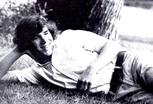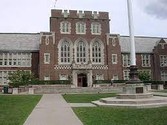|

Stephen Cannon Aldrich
Published: 7/23/2020 3:00:19 AM
Modified: 7/23/2020 3:00:11 AM

STOCKBRIDGE, VT — Stephen Cannon Aldrich died peacefully in the garden room at the Gifford Medical Center in Randolph Vermont, on the afternoon of Tuesday July 7th, with his wife and children at his side. He was sixty-four. A serial entrepreneur, he was well-known for his passionate commitment to his ideals, his generosity, his intellect, and his energetic engagement with community, business, world affairs, and with the world of ideas.
Steve’s undergraduate years at Harvard College (B.A. 1978) led to a lifelong interest in evolutionary biology. While at Harvard, he was active in Science for the People and the anti-apartheid movement to pressure Harvard to divest from South Africa, representing the position of SASC (Southern Africa Solidarity Committee) before the Harvard University Advisory Committee on Shareholder Responsibility in the fall of 1977. Much more recently, he returned to Harvard Yard to participate in an alumni demonstration to pressure Harvard to divest from fossil fuels.
His business career began with a position as Promotion Director at Harvard Magazine where he introduced the use of computer software in the marketing department (1979-1980).
Subsequently he was the Marketing Director for The Coffee Connection (1980-1982). The Huichol yarn paintings on the walls of The Coffee Connection sparked an enduring interest in indigenous cultures. In 1980 Steve founded Friends of Huichol Culture, a non-profit corporation dedicated to the cultural survival of three tribes of indigenous people in Mexico.
He established an archive of Huichol-related tapes, photographs, art works, and documents; researched and organized historic photographic collections of Huichol culture at the Peabody Museum and The American Museum of Natural History; and produced exhibitions and lectures on Huichol art and culture for museums across this country and in Mexico.
In 1985, Steve began a fifteen-year career at Cambridge Energy Research Associates, a consulting firm known for critical knowledge and independent analysis on energy markets, geopolitics, industry trends, technology and strategy. While at CERA (now part of IHS Markit), he became expert in the use of scenario planning. With his colleagues, he built CERA’s natural gas practice, and in 1995 was appointed the at-large representative to the Natural Gas Council. His colleagues from the early days at CERA remember him as “brilliant, creative, an amazing mentor, visionary...one of those people whose insight and quotes still linger with you after decades...” Peter Augustini “vividly remember(s) the work to set up Pivotal and the discussions about the move to a digital world and implications on the business. It’s amazing to think (that) what Steve built back then is much better than what IHS Markit has now!” Tom Robinson “remember(s) in the mid-1990s when we still hadn’t even heard of Google, that Steve was predicting three phases of the internet - first, information, second, commerce, and third, community. He was pretty spot on.”
In 2000, bringing together his consulting and scenario planning experience and his passion for evolutionary biology, Steve launched a new company: Bio-Economic Research Associates, a research and advisory firm working at the intersection of emerging biological knowledge and the economy, providing insights on the economic and societal impacts of human-induced change to biological systems. Bio-era provided expert analysis and scenario planning in the areas of genomic synthesis and design, climate change adaptation, bio-fuels, emerging infectious diseases, and pandemic preparedness. In 2005, Bio-era provided testimony to the US Senate Foreign Relations Committee including warnings about the devastating scope of economic damage from a full-blown pandemic such as we are seeing now, and the opportunity for early warning research on the pathways and hotspots for disease emergence that could have reduced the risk and increased preparedness. Bio-era also provided insight about the effects of the pandemic of fear which accompanies the spread of disease.
In 2009, after living for decades in the Boston area, Steve and his family moved to an 1847 farmhouse in Stockbridge Vermont where he fished in the White River, pressed apples to make cider, gathered sap to make maple syrup, and became deeply involved in the localization movement, serving on the board of a local transportation company, serving as chairman of B.A.L.E. (Building A Local Economy,) and founding the White River Investment Club - a group of local people dedicated to building a better future through local investing. As a volunteer, he taught hands-on genetic engineering to high school students, and, as a jazz afficionado, taught a course in American jazz, and danced his way through the repertoire in the kitchen with his wife.
In March of 2017, Steve was diagnosed with Stage four, “terminal” esophageal cancer. He was told to enjoy today because every subsequent day would be worse than the last, and that he would probably be dead in 3-6 months. His Dana Farber oncologist prescribed at least 12 infusions of palliative, non-curative chemotherapy. Trained in evolutionary biology, Steve understood that either the cancer would evolve to render the chemotherapy ineffective, or the cumulative side effects of the chemotherapy would become intolerable. He also understood that either the cancer would triumph over his immune system, or his immune system would triumph over the cancer, and that chemotherapy is bad for the immune system. After several infusions of chemotherapy to beat back the cancer enough to buy time, Steve embarked on a journey to strengthen his immune system and drew on his knowledge of genomics to work with others to design a personalized vaccine. As a result, in spite of the prognosis for only 3-6 months, Steve enjoyed over three years, which he described as the best in his life, filled with travel, family and community, entrepreneurial vigor, and mostly good health.
Throughout these last three years, Steve was immensely grateful for the care of Dr. Eswar Tipirneni, an oncologist in Vermont who, in spite of his deep knowledge of cancer and prolonged experience with conventional protocols, was willing to work with a patient who wanted to understand the science of the disease for himself, explore and/or create various complementary and cutting edge allopathic options for what might be done, and collaborate with an oncologist for whom he held great respect to implement his chosen therapies. Noting Steve’s intelligence, his willingness to challenge conventional treatments, his “incredible and successful efforts,” and his advocacy for other cancer patients, Dr. Tipirneni said “I do not think I will meet a patient like Steve ever again...I truly feel privileged to have been a part of Steve’s journey and will miss him.”
As part of his process to obtain a personalized vaccine and access other immunotherapy options, Steve arranged for full genomic sequencing of his cancer tissue as well as his healthy tissue. When he encountered delays due to difficulty sharing the resulting volume of information with his collaborators, he responded to the problem by launching a new company to help other cancer patients do what he had done, “better, faster, cheaper.” Now part of Steve’s legacy, MyCancerDB.com is a startup company pioneering a new approach to managing cancer treatment focused on patient control and accelerating access to fully personalized cancer therapies.
Steve was a consummate conversationalist. He had an insatiable curiosity about the fundamental nature of life and, indeed, about everything. He read widely and thought deeply. He was a student of history and an astute observer of contemporary culture and politics. As a conversational partner, he moved with authority and enthusiastic inquiry from biology and physics, through politics, jazz, visual arts and film, to Buddhism, Christian theology and archaeology... His family noted that you could pretty much name a topic and Steve had read about it, thought about it, and formed a hypothesis. He had a vast reservoir of humor and relished the role of raconteur.
Above all else, Steve treasured his wife and children, his extended family and community of friends, and the generative love which he saw as fundamental to the entire web of life.
Stephen Cannon Aldrich was born in Boston, Massachusetts on October 1, 1955. His parents were Charles Duane Aldrich and Elizabeth Cannon Aldrich. He was the sixth of nine children. His first ten years were spent in the Boston suburb of Wellesley. In 1965, his family moved to Bronxville, New York. He graduated from Bronxville Public High School in 1973, having been awarded a New York State Regents Scholarship and cited as the outstanding student of his class in American History. He graduated from Harvard College in 1978. In 1989 he married Deborah Merritt. The couple lived with their children in Arlington, Massachusetts before moving to Vermont in 2009.
He is survived by his wife, Deborah Merritt Aldrich; his children, Noah and Amelia (Mia) Aldrich; his brothers and their spouses, Peter and Widgie Aldrich, John and Mary Aldrich, and Mark and Asun Arnedo Aldrich; his sisters and their spouses, Elizabeth and Heinz Kaspar, Ann Aldrich and George Hechtman, Amy Geogan, and Sarah and Steve Murray; twenty one nieces and nephews and their spouses; nine grand-nieces and nephews; and 3 on the way; a treasured community of friends, and his golden retriever, Maisy.
A memorial is planned with timing pending developments in the COVID 19 pandemic.
For those wishing to send a gift in memory of Steve, please send a check made out to Building A Local Economy, PO Box 211, South Royalton, VT 05077 and/or stay tuned for the opportunity to donate to a planned non-profit to help cancer patients access personalized thera See profile
|

